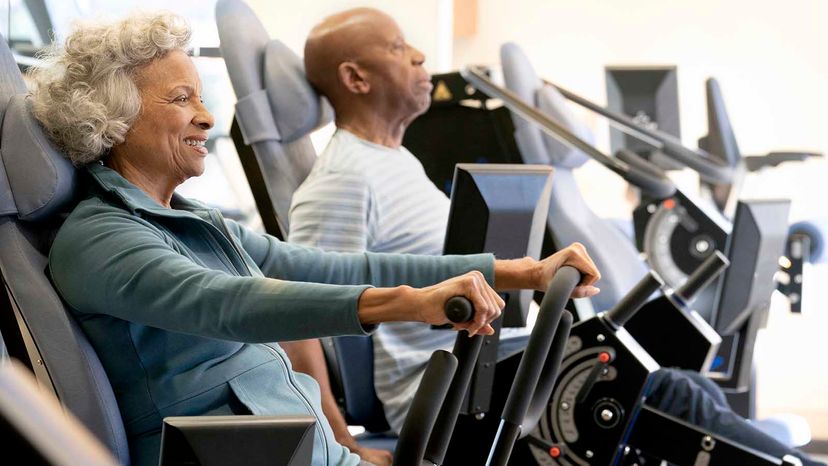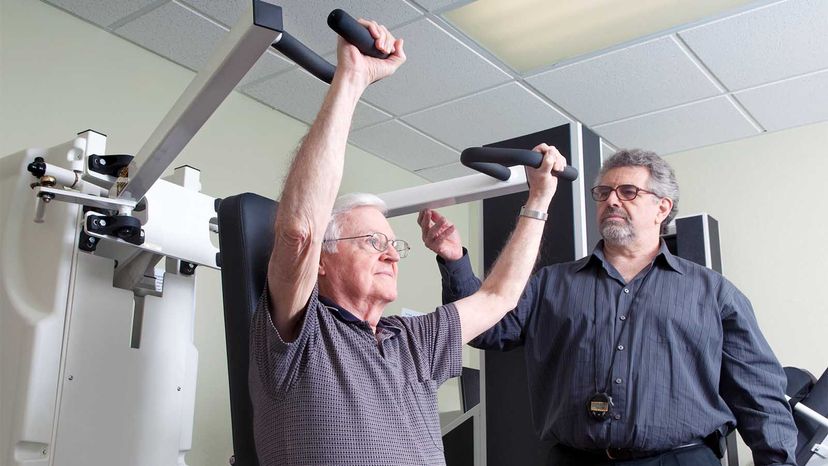The type of surgery and the patient's needs dictate the type of prehabilitation needed. Here are some examples of how prehabilitation works:
Muscular strength: Prehab is often used in patients undergoing joint replacement surgery to build muscle mass in order to support the body and provide mobility as the affected area recovers. For example, an 84-year-old man was prehabilitated before knee replacement surgery to strengthen his upper body. The prehab focused on his arm strength so he could lift himself in and out of chairs and his bed until his could apply pressure on his rebuilt knee.
Cardiorespiratory: "Cardiorespiratory muscles are extremely important when it comes to intubation during anesthesia. The impact on the lungs is very big," Starr says. Smokers and people with poor lung volume or cardio-respiratory fitness are at greater risk for infection, pneumonia or aspiration — "all are things that will cause long-term, postoperative complications and reduced ability to heal from surgery."
Prehab for patients undergoing a lobectomy or having a portion of their lung removed may focus on building aerobic capacity in addition to strength training.
Nutritional: Nutrition impacts how quickly the body heals from the stress of surgery, which is why being nutritionally fit before undergoing surgery is imperative to a good recovery, Starr says.
Many conditions can adversely impact nutrition. As we age, our bodies go through physiological and metabolic changes that result in a loss of muscle mass and renal function, which affect hydration and fluid status — "important factors in regard to surgery because of the stress response," Starr says.
Surgical stress also boosts blood sugar levels in the body, posing risks for patients who are not nutritionally fit. For example, surgery puts diabetic patients at risk for complications, including wound site infections and longer recovery.
Cancer and cancer treatments can also affect a person's ability to eat food or absorb nutrients, which can lead to malnutrition.
"Just like with function and cardiorespiratory and physical function, we know that nutritional status is going to decline in the hospital setting," Starr says. "We want to make sure we do everything we can on the front end to help mitigate that on the back end."




